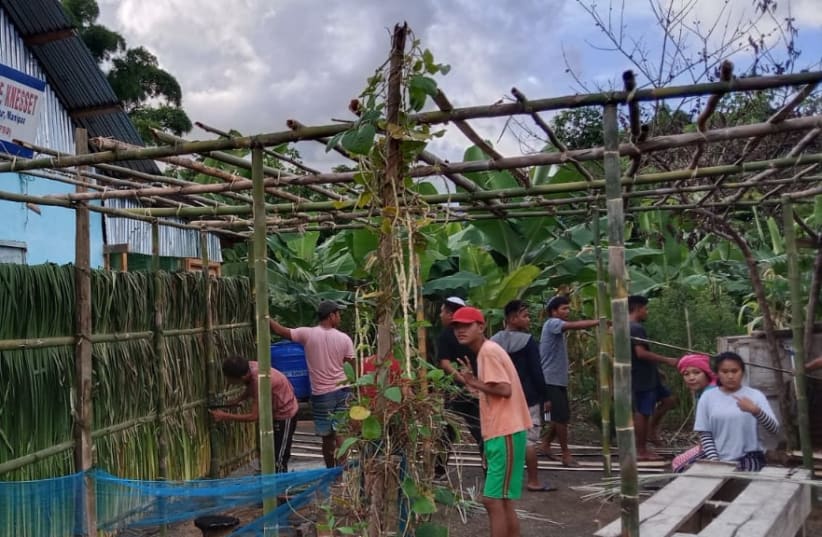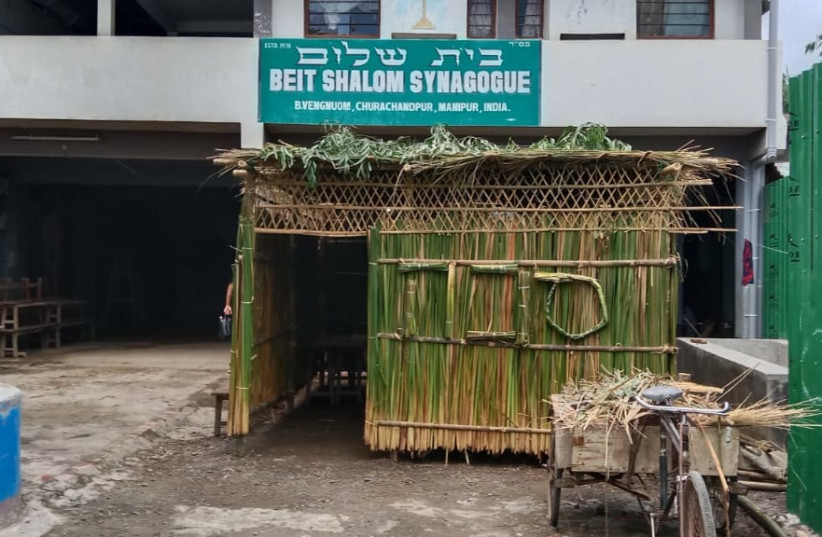Like thousands of Jews across the globe, the members of the Bnei Menashe community of northeastern India are preparing for Sukkot celebrations this week.
In the community's prayers for the holiday, they seek to return to the Land of Israel.
"Even in the most remote areas of northeastern India, the Bnei Menashe maintain the ancient tradition of building Sukkot, and we all hope that next year they will be privileged enough to do so in Israel," Shavei Israel founder and chairman Michael Freund said in a statement.
Shavei Israel is a nonprofit organization founded in 2002 by Freund, who made aliyah from the United States and works to strengthen ties between the State of Israel and Jewish communities around the world.
"The story of this special community, which has maintained its connection to the people and the Land of Israel for generations, is moving and inspiring. And I want to wish each and every one of them a happy Sukkot, and a happy new year," Freund said.
According to tradition passed down through the generations, the Bnei Menashe consider themselves descendants of the Menashe tribe, one of the ten tribes expelled from Israel at the end of the First Temple period by the king of Assyria more than 2,700 years ago. The community, said to total about 10,000 individuals, were formally recognized as members of a lost tribe by then-Sephardi Chief Rabbi Shlomo Atar in 2005, but he did say they would need to undergo a formal conversion.
About 4,500 Bnei Menashe have made aliyah to Israel, thanks to Shavei Israel, and about 6,000 are waiting in India for the opportunity to make aliyah.

